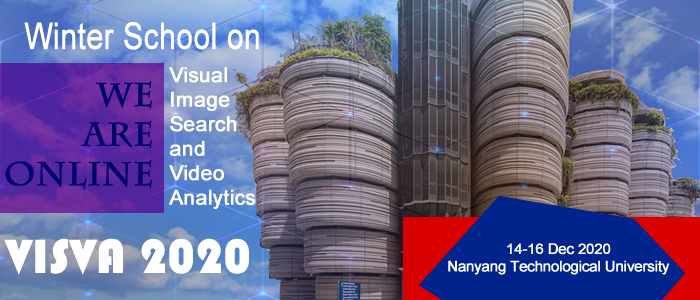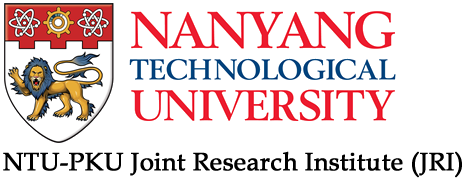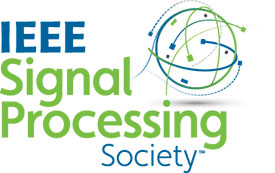
Past VISVA Speakers include:
- Rama CHELLAPPA, University of Maryland
- Mark LIAO, Institute of Information Science, Academia Sinica
- Chang-Tsun LI, Charles Sturt University
- Xilin CHEN, Institute of Computing Technology, CAS
- Sanghoon LEE, Yonsei University
- Shubha Kadambe, Raytheon Space and Airborne Systems
- Edward J DELP, Purdue University
- Lingyu DUAN, Peking University
- Bernd GIROD, Stanford University
- Christine GUILLEMOT, INRIA
- Abdenour HADID, University of Oulu
- Julien LAI, NVIDIA
- Antonio ORTEGA, University of Southern California
- Sinno PAN, Nanyang Technological University
- Koichi SHINODA, Tokyo Institute of Technology
- Nikolaos BOULGOURIS, Brunel University
- Irene Yu-Hua GU, Chalmers University of Technology
- Candy Chiou-Ting HSU, National Tsing Hua University
- Tiejun HUANG, Peking University
- Xudong JIANG, Nanyang Technological University
- C.-C. Jay KUO, University of Southern California
- Yonghong TIAN, Peking University
- Junsong YUAN, Nanyang Technological University
- Wenjun ZENG, Mircrosoft Research Asia, China
- David FORSYTH, University of Illinois at Urbana-Champaign
- Yihong GONG, Xi'an Jiaotong University
- Pierre MOULIN,University of Illinois at Urbana-Champaign
- Z.Jane WANG, Univeristy of British Columbia
- Xiaogang WANG, CHinese University of Hong Kong
- Dong XU, Nanyang Technological University

The rapid development of artificial intelligence (AI) and machine learning (ML) increasingly allows advanced computer vision tasks, ranging from visual enhancement to analytics, to be incorporated into a suite of emerging applications, in trillion dollar industries such as E-commerce, Online Advertising, Surveillance, Image Forensics, and Autonomous Vehicles. In recent years, we have witnessed significant research progress made in this area of research, which raises a set of new questions. For example, what are the recent advances in the deep generative models? How to tackle challenges on visual significance and artifacts from contaminated images toward big-data analytics? How to integrate classic signal processing and design of modern deep neural networks?
Our VISVA 2020 winter school provides a unique opportunity to gain an in-depth appreciation of these cutting-edge AI topics. VISVA 2020 aims to provide a stimulating opportunity for young researchers and Ph.D. students to get to know the state of the art technologies. Participants will benefit from direct interaction and discussions with world leaders in Image Analysis and Computer Vision. Participants will also have the possibility to introduce their research, and to interact with their scientific peers, in a friendly and constructive environment. The winter school will take place at Nanyang Technological University, Singapore.
Past VISVA website









